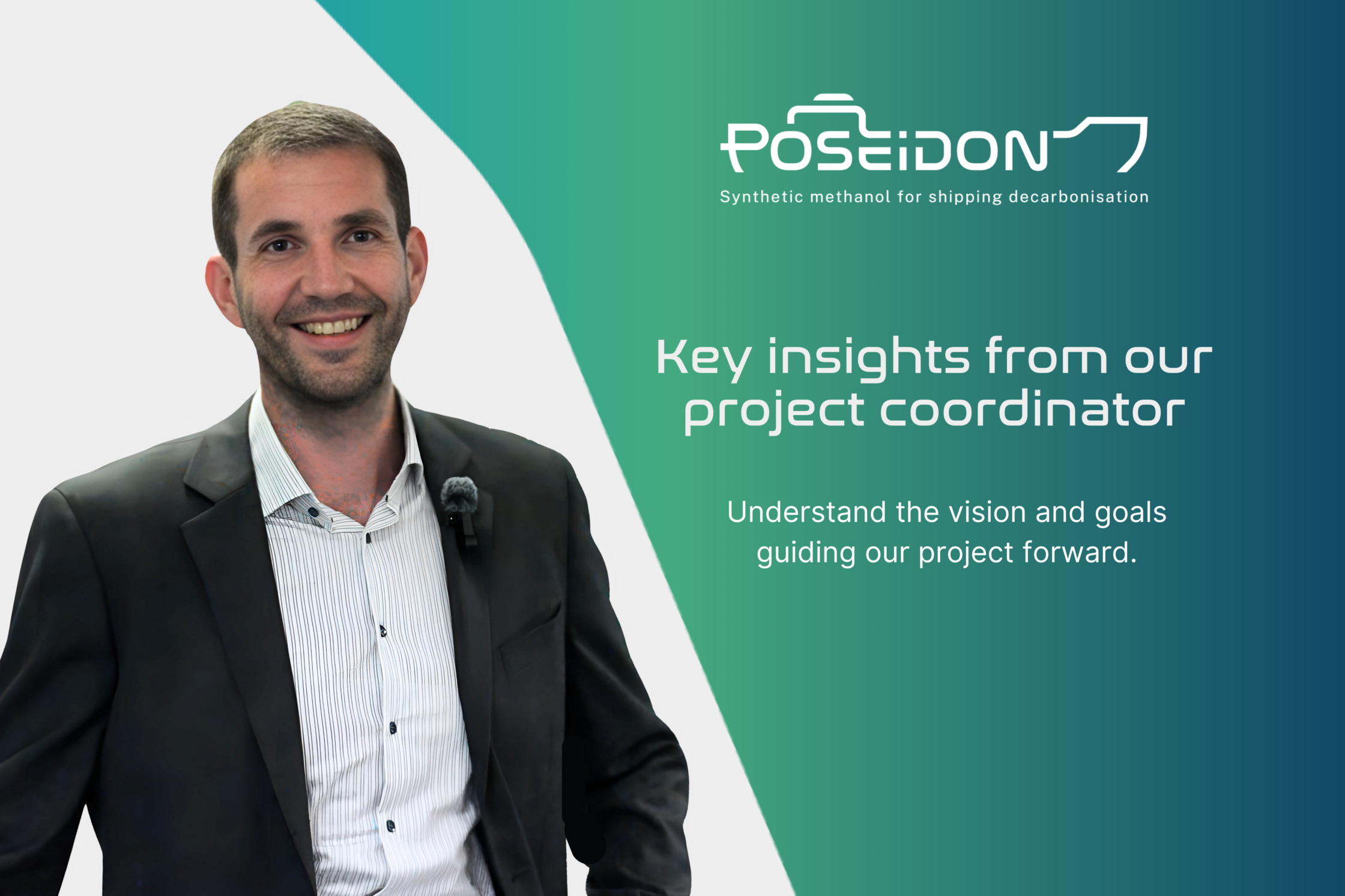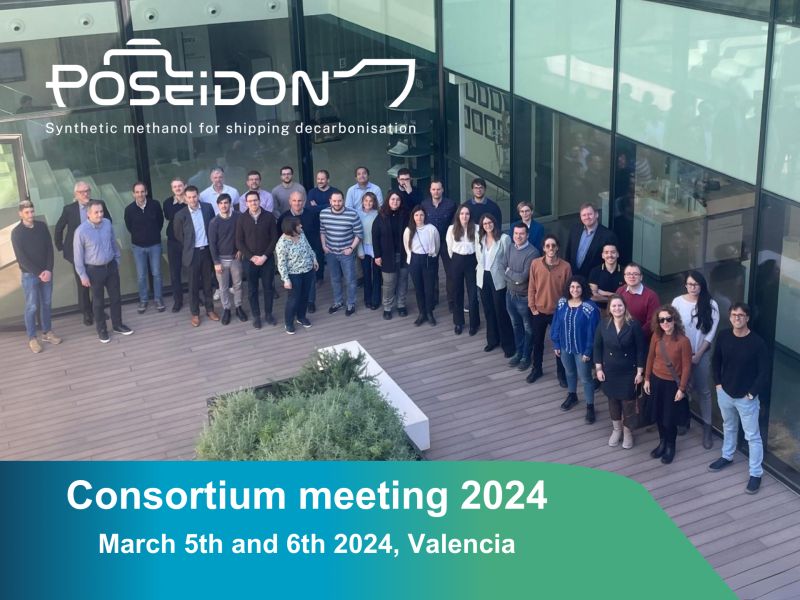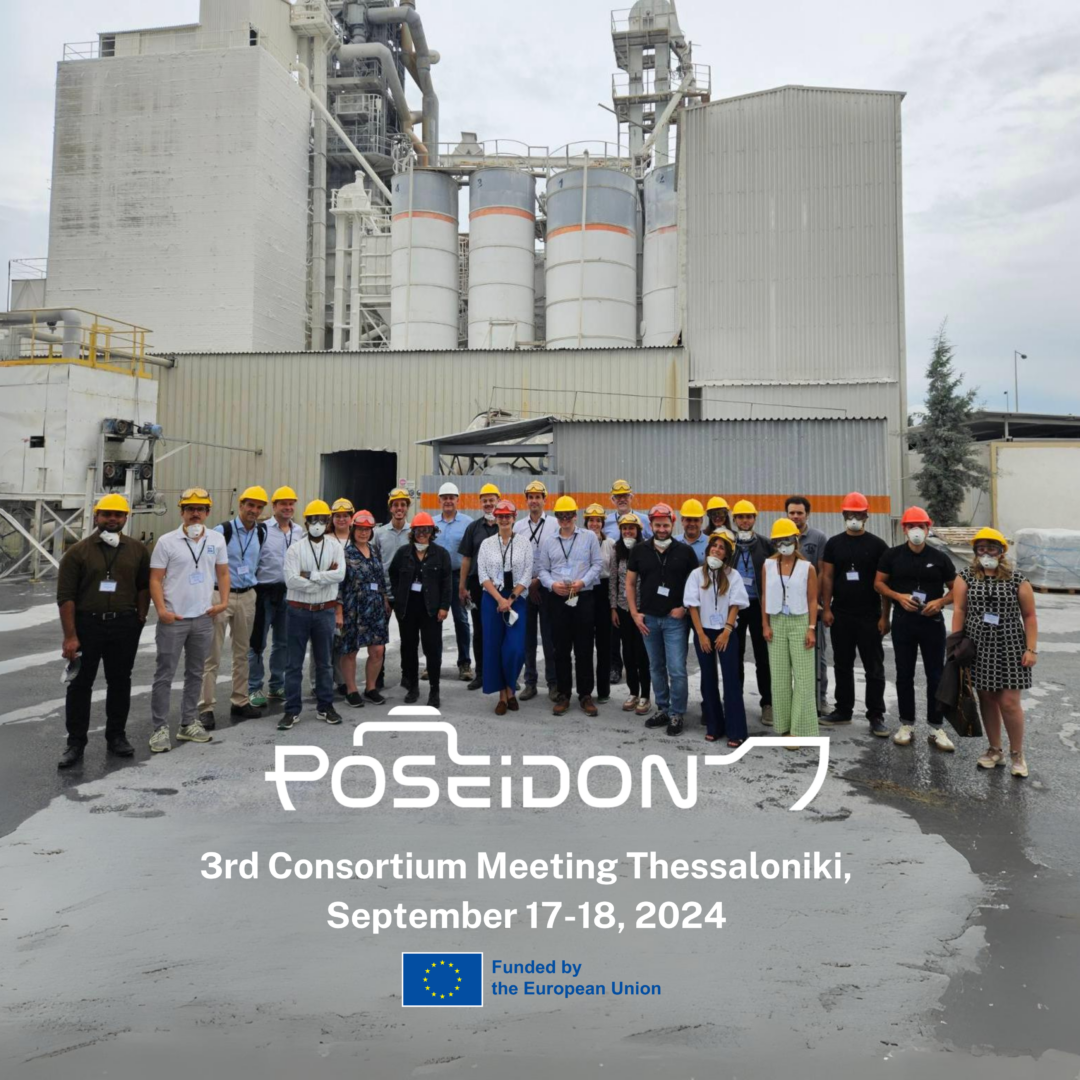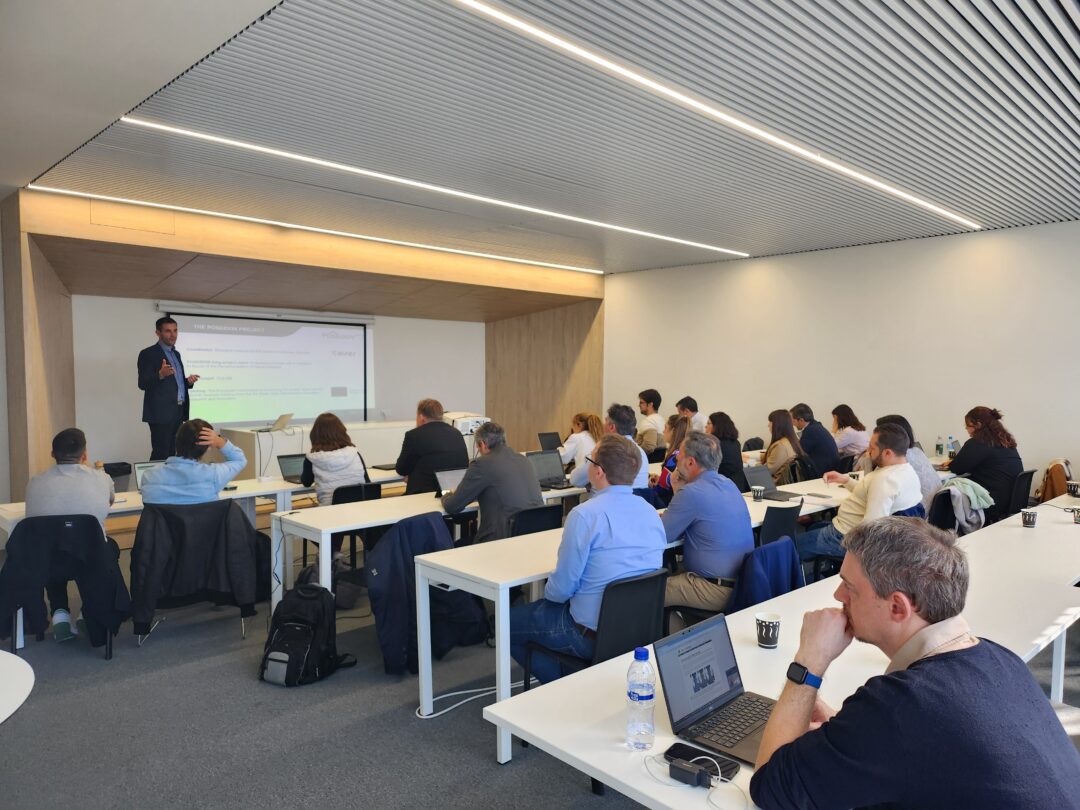We are excited to present an exclusive interview with Dr. Julian Dailly, the POSEIDON project coordinator from the European Institute for Energy Research (EIFER) in Karlsruhe, Germany.
Julian Dailly is a senior researcher and project manager with expertise in alternative fuels. He is the head of the ENERMAT laboratory in Karlsruhe focusing on the development of materials and processes for energy-related applications and the president of the ISPC2 association (International Society for Protonic Ceramic Conductors).
Julian Dailly acts as intermediary between the parties and the granting authority. He is responsible for ensuring that project partners fulfil their commitments and for administering the financial contribution of the granting authority.
In this interview, Julian Dailly discusses the motivations, challenges, and aspirations driving the POSEIDON project. He explains how POSEIDON can help increase the use of e-methanol for propulsion in maritime applications. paving the way for a greener, more sustainable future for naval transport.
- Julian, what inspired the launch of the POSEIDON project?
Our primary goal is to contribute significantly to global sustainability and environmental preservation! The POSEIDON project, focusing on synthetic methanol, plays a pivotal role in this effort. The International Maritime Organisation has set a highly strategic target to significantly reduce greenhouse gas emissions from the maritime sector, particularly shipping. By 2050, we aim to cut total annual greenhouse gas emissions by at least 50% compared to 2008 levels—a formidable challenge! This ambitious goal is part of the European Commission’s FuelEU Maritime proposal, included in the Fitfor55 package. Renewable fuels, like synthetic methanol from the POSEIDON project, with their low well-to-tank emissions, are crucial to achieving this decarbonization of shipping.
2. What are the key challenges in producing and using more renewable fuel for shipping in EU?
First, we need to identify which are the potential fuels for decarbonizing EU shipping, such as renewable hydrogen, e-ammonia and e-methanol. Hydrogen, when converted to electricity by fuel cells, releases no CO₂, while the carbon intensity of e-methanol depends on the CO₂ used for its production. However, carbon content of the fuel is not the only aspects to be considered in the final choice. We must look at the entire value chain, and not only the final use. Key challenges include:
- Feedstock availability: There’s competition for feedstock between different sectors and applications,
- Production technologies: These are still limited and vary depending on the fuel being synthesized.
- Infrastructure: fuel transport / storage / bunkering should be more developed and probably somehow harmonized among ports for a better compatibility,
- Feasibility onboard ships: Safety aspects, retrofitting and new motors / vessels development are crucial.
- Cost: Renewable fuels are still significantly more expensive than fossil fuels.
Additionally, political and legal hurdles, such as unfavored regulations, codes and standards, can impede the deployment of new technologies. Social mistrust due to misconceptions and environmental concerns related to emissions and material scarcity also pose challenges.
In this context, e-methanol stands as a game changer. It’s liquid at normal pressure, making it easy to refuel, transport, store and use onboard ships. Existing infrastructure and engines can be adapted for e-methanol, offering a cost advantage over other alternative marine fuels. Plus, e-methanol can also be blended with existing fuels and burnt in dual-fuel engines.
3. What are the major expected impacts of POSEIDON’s results?
At the conclusion of the POSEIDON project, we anticipate several significant impacts:
Firstly, development of new knowledge and tools to create comprehensive e-methanol value chains.
This involves creating methodologies, knowledge, tools validated through real case studies. This will help us assess various scenarios, understand potential barriers and benefits, and identify the requirements for setting-up a value chain centered on e-methanol as fuel for shipping.
Secondly, reinforcing EU scientific basis is a major goal.
Maintaining scientific excellence is crucial for projects like POSEIDON to uphold European leadership in renewable energy technologies. We align our efforts with EU research priorities, emphasizing knowledge and promoting open science to maximize impacts after the end of the project. Collaborations are key, which is why the POSEIDON consortium include both academic and industrial partners. We’re also fostering new collaborations by involving external stakeholders, sharing data sets and publications, and organizing conferences and events.
Increasing competitiveness is another critical aspect.
Cost reduction is essential for the development of renewable fuels. It is necessary to increase the competitiveness of technologies and foster their commercialization. For POSEIDON, this means improving and deploying the power-to-e-methanol technology developed by ICODOS, supported by the development of a digital twin, and developing new methanol-based engines by IFM and WinGD.
De-risking and replicate technology are vital for scaling up and market adoption.
It implies full-scale case studies in Valencia and Thessaloniki based on local roadmaps, to concretize the implementation of the value chains developed during the project. We expect conversion plants to be commissioned in 2029 in both ports, supplying ships equipped with e-methanol engines starting 2030. The Community of Practice, created during the project and composed of local stakeholders, will support the implementation of these value chains. The long-term objective is the implementation in other European ports.
Finally, we’re focused on improving the sustainability and security of the value chain, and delivering innovative products to reduce greenhouse gases emissions.
The project also addresses social impacts, aiming to reduce the EU’s dependence on fossil fuels while developing long-term carbon-neutral solutions for the transport and energy-intensive industrial sectors. This includes reducing emissions from maritime transport, gaining public acceptance of e-fuels in port cities, and creating new jobs through the production and export of equipment and renewable fuel plants.
4. How can external stakeholders get involved in the POSEIDON project?
We’ve developed two main bodies to involve external stakeholders in POSEIDON.
First, we have the advisory board, which was created during the project’s preparation phase. This board includes users, stakeholders, and associations who support the project by helping us understand the value chain. They provide valuable input on their experiences, requirements, constraints, and future needs. Additionally, they offer feedback on the scenarios, roadmaps, recommendations and tools developed in POSEIDON.
The Advisory Board is a dynamic organ of the project, and we recently welcomed the port of Singapore as a member in September 2024.
Secondly, we’ve established two communities of practice around the 2 case studies in Valencia and Thessaloniki. They gather project partners and external stakeholders, including companies in the port areas, ship owners, fuel suppliers, and regional planning departments interested in the renewable fuel transition. Regular meetings are set to present and explain the project, its progress and activities, and to foster a link between the different members to enable collaborations after the end of the project. These communities also play a crucial role in validating the roadmaps for implementing the local e-methanol value chains in the ports of Valencia and Thessaloniki.
We want to thank Julian for sharing these insights into the POSEIDON project. To our audience, stay tuned for updates on the POSEIDON project. Follow our progress as we work towards revolutionizing the renewable fuel industry and creating sustainable solutions for the future. Keep an eye out for our upcoming events, publications, and announcements. Your support and involvement are crucial to our success!





